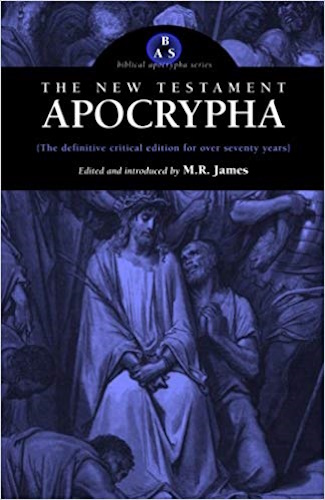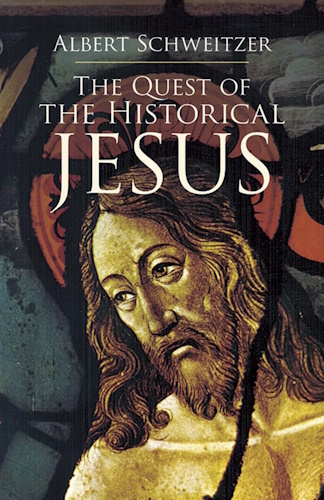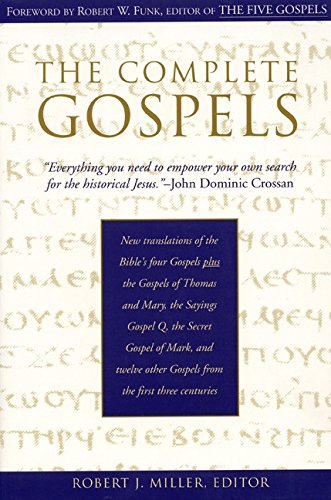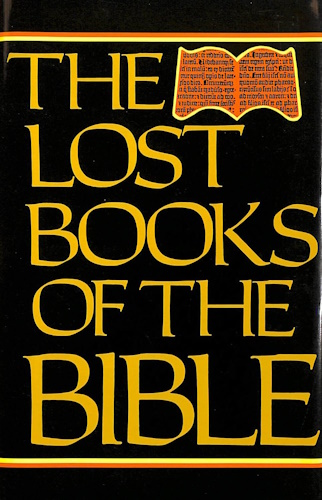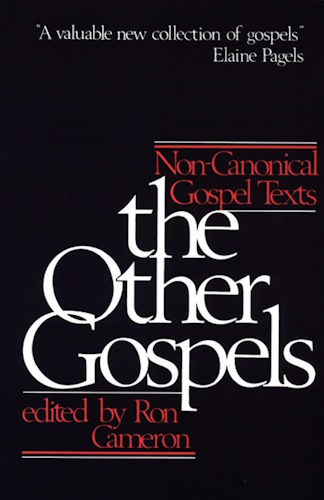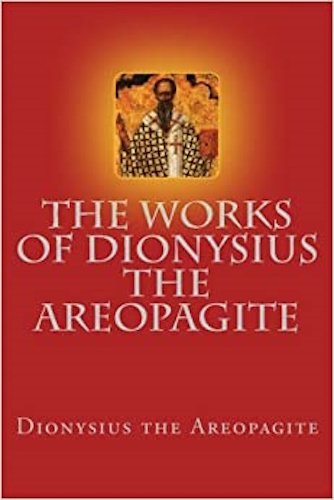
The works of Dionysius the Areopagite
On The Heavenly Hierarchy
Caput II
That Divine and Heavenly things are appropriately revealed, even through dissimilar symbols.
Section I.
It is necessary then, as I think, first to set forth what we think is the purpose of every Hierarchy, and what benefit each one confers upon its followers; and next to celebrate the Heavenly Hierarchies according to their revelation in the Oracles; then following these Oracles, to say in what sacred forms the holy writings of the Oracles depict the celestial orders, and to what sort of simplicity we must be carried through the representations; in order that we also may not, like the vulgar, irreverently think that the heavenly and Godlike minds are certain many-footed165 and many-faced166 creatures, or moulded to the brutishness of oxen167, or the savage form of lionsIbid., and fashioned like the hooked beaks of eaglesIbid., or the feathery down of birds168, and should imagine that there are certain wheels169 of fire above the heaven,
page 5
or material thrones170 upon which the Godhead may recline, or certain many-coloured171 horses, and spear-bearing leaders of the host172, and whatever else was transmitted by the Oracles to us under multifarious symbols of sacred imagery.
And indeed, the Word of God173 artlessly makes use of poetic representations of sacred things, respecting the shapeless minds, out of regard to our intelligence, so to speak, consulting a mode of education proper and natural to it, and moulding the inspired writings for it.
Section II.
But if any one think well to accept the sacred compositions as of things simple and unknown in their own nature, and beyond our contemplation, but thinks the imagery of the holy minds in the Oracles is incongruous, and that all this is, so to speak, a rude scenic representation of the angelic names; and further says that the theologians ought, when they have come to the bodily representation of creatures altogether without body, to represent and display them by appropriate and, as far as possible, cognate figures, taken, at any rate, from our most honoured and immaterial and exalted beings, and ought not to clothe the heavenly and Godlike simple essences with the many forms of the lowest creatures to be found on the earth (for the one would perhaps be more adapted to our instruction, and would not
page 6
degrade the celestial explanations to incongruous dissimilitudes; but the other both does violence without authority to the Divine powers, and likewise leads astray our minds, through dwelling upon these irreverent descriptions); and perhaps he will also think that the super-heavenly places are filled with certain herds of lions, and troops of horses, and bellowing songs of praise, and flocks of birds, and other living creatures, and material and less honourable things, and whatever else the similitudes of the Oracles, in every respect dissimilar, describe, for a so-called explanation, but which verge towards the absurd, and pernicious, and impassioned; now, in my opinion, the investigation of the truth demonstrates the most sacred wisdom of the Oracles, in the descriptions of the Heavenly Minds, taking forethought, as that wisdom does, wholly for each, so as neither, as one may say, to do violence to the Divine Powers, nor at the same time to enthral us in the grovelling passions of the debased imagery. For any one might say that the cause why forms are naturally attributed to the formless, and shapes to the shapeless, is not alone our capacity which is unable immediately to elevate itself to the intelligible contemplations, and that it needs appropriate and cognate instructions which present images, suitable to us, of the formless and supernatural objects of contemplation; but further, that it is most agreeable to the revealing Oracles to conceal, through mystical and sacred enigmas, and to keep the holy and secret truth respecting the supermundane minds inaccessible to the multitude.
page 7
For it is not every one that is holy, nor, as the Oracles affirm, does knowledge belong to all174.
Section III.
But if any one should blame the descriptions as being incongruous, by saying that it is shameful to attribute shapes so repugnant to the Godlike and most holy Orders, it is enough to reply that the method of Divine revelation is twofold; one, indeed, as is natural, proceeding through likenesses that are similar, and of a sacred character, but the other, through dissimilar forms, fashioning them into entire unlikeness and incongruity. No doubt, the mystical traditions of the revealing Oracles sometimes extol the august Blessedness of the super-essential Godhead, as Word175, and Mind176, and Essence177, manifesting its God-becoming expression and wisdom, both as really being Origin, and true Cause of the origin of things being, and they describe It as light178, and call it life. While such sacred descriptions are more reverent, and seem in a certain way to be superior to the material images, they yet, even thus, in reality fall short of the supremely Divine similitude. For It is above every essence and life. No light, indeed, expresses its character, and every description and mind incomparably fall short of Its similitude.
But at other times its praises are supermundanely sung, by the Oracles themselves, through dissimilar revelations, when they affirm that it is invisible179, and
page 8
infinite180, and incomprehensible181; and when there is signified, not what it is, but what it is not. For this, as I think, is more appropriate to It, since, as the secret and sacerdotal tradition taught, we rightly describe its non-relationship to things created, but we do not know its superessential, and inconceivable, and unutterable indefinability. If, then, the negations respecting things Divine are true, but the affirmations are inharmonious, the revelation as regards things invisible, through dissimilar representations, is more appropriate to the hiddenness of things unutterable. Thus the sacred descriptions of the Oracles honour, and do not expose to shame, the Heavenly Orders, when they make them known by dissimilar pictorial forms, and demonstrate through these their supermundane superiority over all. material things. And I do not suppose that any sensible man will gainsay that the incongruous elevate our mind more than the similitudes; for there is a likelihood, with regard to the more sublime representations of heavenly things, that we should be led astray, so as to think that the Heavenly Beings are certain creatures with the appearance of gold, and certain men with the appearance of light182, and glittering like lightning183, handsome184, clothed in bright shining raiment, shedding forth innocuous flame, and so with regard to all the other shapes and appropriate forms, with which the Word of God has depicted the Heavenly Minds. In order that men might not suffer from this, by
page 9
thinking they are nothing more exalted than their beau tiful appearance, the elevating wisdom of the pious theologians reverently conducts to the incongruous dissimilarities, not permitting our earthly part to rest fixed in the base images, but urging the upward tendency of the soul, and goading it by the unseemliness of the phrases (to see) that it belongs neither to lawful nor seeming truth, even for the most earthly conceptions, that the most heavenly and Divine visions are actually like things so base. Further also this must particularly be borne in mind, that not even one of the things existing is altogether deprived of participation in the beautiful, since, as is evident and the truth of the Oracles affirms, all things are very beautiful185.
Section IV.
It is, then, possible to frame in one's mind good contemplations from everything, and to depict, from things material, the aforesaid dissimilar similitudes, both for the intelligible and the intelligent; since the intelligent hold in a different fashion things which are attributed to things sensible differently. For instance, appetite, in the irrational creatures, takes its rise in the passions, and their movement, which takes the form of appetite, is full of all kinds of unreasonableness. But with regard to the intelligent, we must think of the appetite in another fashion, as denoting, according to my judgment, their manly style, and their determined persistence
page 10
in their Godlike and unchangeable steadfastness. In like manner we say, with regard to the irrational creatures, that lust is a certain uncircumspect and earthly passionate attachment, arising incontinently from an innate movement, or intimacy in things subject to change, and the irrational supremacy of the bodily desire, which drives the whole organism towards the object of sensual inclination. But when we attribute "lust" to spiritual beings, by clothing them with dissimilar similitudes, we must think that it is a Divine love of the immaterial, above expression and thought, and the inflexible and determined longing for the supernally pure and passionless contemplation, and for the really perpetual and intelligible fellowship in that pure and most exalted splendour, and in the abiding and beautifying comeliness. And 'incontinence' we may take for the persistent and inflexible, which nothing can repulse, on account of the pure and changeless love for the Divine beauty, and the whole tendency towards the really desired. But with regard to the irrational living beings, or soulless matter, we appropriately call their irrationality and want of sensible perception a deprivation of reason and sensible perception. And with regard to the immaterial and intelligent beings, we reverently acknowledge their superiority, as supermundane beings, over our discursive and bodily reason, and the material perception of the senses which is alien to the incorporeal Minds. It is, then, permissible to depict forms, which are not discordant, to the celestial beings, even from
page 11
portions of matter which are the least honourable, since even it, having had its beginning from the Essentially Beautiful, has throughout the whole range of matter some echoes of the intellectual comeliness; and it is possible through these to be led to the immaterial archetypes—things most similar being taken, as has been said, dissimilarly, and the identities being denned, not in the same way, but harmoniously, and appropriately, as regards the intellectual and sensible beings.
Section V.
We shall find the Mystic Theologians enfolding these things not only around the illustrations of the Heavenly Orders, but also, sometimes, around the supremely Divine Revelations Themselves. At one time, indeed, they extol It under exalted imagery as Sun186 of Righteousness, as Morning187 Star rising divinely in the mind, and as Light188 illuming without veil and for contemplation; and at other times, through things in our midst, as Fire189, shedding its innocuous light; as Water190, furnishing a fulness of life, and, to speak symbolically, flowing into a belly, and bubbling forth rivers flowing irresistibly; and at other times, from things most remote, as sweet-smelling ointment191, as Head Corner-stone192. But they also clothe It in forms of wild beasts, and attach to It identity with a Lion193, and Panther194, and say that it shall be a Leopard195, and a rushing BearIbid.. But,
page 12
I will also add, that which seems to be more dishonourable than all, and the most incongruous, viz. that distinguished theologians have shewn it to us as representing Itself under the form of a worm196. Thus do all the godly-wise, and interpreters of the secret inspiration, separate the holy of holies197 from the uninitiated and the unholy, to keep them undefined, and prefer the dissimilar description of holy things, so that Divine things should neither be easily reached by the profane, nor those who diligently contemplate the Divine imagery rest in the types as though they were true; and so Divine things should be honoured by the true negations, and by comparisons with the lowest things, which are diverse from their proper resemblance. There is then nothing absurd if they depict even the Heavenly Beings under incongruous dissimilar similitudes, for causes aforesaid. For probably not even we should have come to an investigation, from not seeing our way,—not to say to mystic meaning through an accurate enquiry into Divine things,—unless the deformity of the descriptions representing the Angels had shocked us, not permitting our mind to linger in the discordant representations, but rousing us utterly to reject the earthly proclivities, and accustoming us to elevate ourselves through things that are seen, to their supermundane mystical meanings. Let these things suffice to have been said on account of the material and incongruous descriptions of the holy Angels in the Holy Oracles. And next, it is
page 13
necessary to define what we think the Hierarchy is in itself, and what benefit those who possess a Hierarchy derive; from the same. But let Christ lead the discourse—if it be lawful to me to say—He Who is mine,—the Inspiration of all Hierarchical revelation. And thou, my son, after the pious rule of our Hierarchical tradition, do thou religiously listen to things religiously uttered, becoming inspired through instruction in inspired things; and when thou hast enfolded the Divine things in the secret recesses of thy mind, guard them closely from the profane multitude as being uniform, for it is not lawful, as the Oracles say, to cast to swine the unsullied and bright and beautifying comeliness of the intelligible pearls.
172 Joshua v. 13, 14; 2 Macc. iii. 25.
173 Θεολογία.
187 Num. xxiv. 17; 2 Pet. i. 19.
197 ἅγια τῶν ἅγιων.
![]()
![]()
-
Urantia Book, 44:0.11 - The Celestial Artisans
Never in your long ascendancy will you lose the power to recognize your associates of former existences. Always, as you ascend inward in the scale of life, will you retain the ability to recognize and fraternize with the fellow beings of your previous and lower levels of experience. Each new translation or resurrection will add one more group of spirit beings to your vision range without in the least depriving you of the ability to recognize your friends and fellows of former estates.
-
Princess Bride 1987 Wallace Shawn (Vizzini) and Mandy Patinkin (Inigo Montoya)
Vizzini: HE DIDN'T FALL? INCONCEIVABLE.
Inigo Montoya: You keep using that word. I do not think it means what you think it means. -
Urantia Book, 117:4.14 - The Finite God
And here is mystery: The more closely man approaches God through love, the greater the reality -- actuality -- of that man. The more man withdraws from God, the more nearly he approaches nonreality -- cessation of existence. When man consecrates his will to the doing of the Father's will, when man gives God all that he has, then does God make that man more than he is.
-
Urantia Book, 167:7.4 - The Talk About Angels
"And do you not remember that I said to you once before that, if you had your spiritual eyes anointed, you would then see the heavens opened and behold the angels of God ascending and descending? It is by the ministry of the angels that one world may be kept in touch with other worlds, for have I not repeatedly told you that I have other sheep not of this fold?"
-
Urantia Book, Foreword - 0:12.12 - The Trinities
But we know that there dwells within the human mind a fragment of God, and that there sojourns with the human soul the Spirit of Truth; and we further know that these spirit forces conspire to enable material man to grasp the reality of spiritual values and to comprehend the philosophy of universe meanings. But even more certainly we know that these spirits of the Divine Presence are able to assist man in the spiritual appropriation of all truth contributory to the enhancement of the ever-progressing reality of personal religious experience—God-consciousness.
-
Urantia Book, 1:4.3 - The Mystery Of God
When you are through down here, when your course has been run in temporary form on earth, when your trial trip in the flesh is finished, when the dust that composes the mortal tabernacle "returns to the earth whence it came"; then, it is revealed, the indwelling "Spirit shall return to God who gave it." There sojourns within each moral being of this planet a fragment of God, a part and parcel of divinity. It is not yet yours by right of possession, but it is designedly intended to be one with you if you survive the mortal existence.
-
Urantia Book, 1:4.1 - The Mystery Of God
And the greatest of all the unfathomable mysteries of God is the phenomenon of the divine indwelling of mortal minds. The manner in which the Universal Father sojourns with the creatures of time is the most profound of all universe mysteries; the divine presence in the mind of man is the mystery of mysteries.
-
Urantia Book, 1:4.6 - The Mystery Of God
To every spirit being and to every mortal creature in every sphere and on every world of the universe of universes, the Universal Father reveals all of his gracious and divine self that can be discerned or comprehended by such spirit beings and by such mortal creatures. God is no respecter of persons, either spiritual or material. The divine presence which any child of the universe enjoys at any given moment is limited only by the capacity of such a creature to receive and to discern the spirit actualities of the supermaterial world.
-
Urantia Book, 11:0.1 - The Eternal Isle Of Paradise
Paradise is the eternal center of the universe of universes and the abiding place of the Universal Father, the Eternal Son, the Infinite Spirit, and their divine co-ordinates and associates. This central Isle is the most gigantic organized body of cosmic reality in all the master universe. Paradise is a material sphere as well as a spiritual abode. All of the intelligent creation of the Universal Father is domiciled on material abodes; hence must the absolute controlling center also be material, literal. And again it should be reiterated that spirit things and spiritual beings are real.
-
Urantia Book, 50:6.4 - Planetary Culture
Culture presupposes quality of mind; culture cannot be enhanced unless mind is elevated. Superior intellect will seek a noble culture and find some way to attain such a goal. Inferior minds will spurn the highest culture even when presented to them ready-made.
-
Urantia Book, 54:1.6 - True And False Liberty
True liberty is the associate of genuine self-respect; false liberty is the consort of self-admiration. True liberty is the fruit of self-control; false liberty, the assumption of self-assertion. Self-control leads to altruistic service; self-admiration tends towards the exploitation of others for the selfish aggrandizement of such a mistaken individual as is willing to sacrifice righteous attainment for the sake of possessing unjust power over his fellow beings.
-
Urantia Book, 54:1.9 - True And False Liberty
How dare the self-willed creature encroach upon the rights of his fellows in the name of personal liberty when the Supreme Rulers of the universe stand back in merciful respect for these prerogatives of will and potentials of personality! No being, in the exercise of his supposed personal liberty, has a right to deprive any other being of those privileges of existence conferred by the Creators and duly respected by all their loyal associates, subordinates, and subjects.
-
Urantia Book, 54:1.8 - True And False Liberty
There is no error greater than that species of self-deception which leads intelligent beings to crave the exercise of power over other beings for the purpose of depriving these persons of their natural liberties. The golden rule of human fairness cries out against all such fraud, unfairness, selfishness, and unrighteousness.
